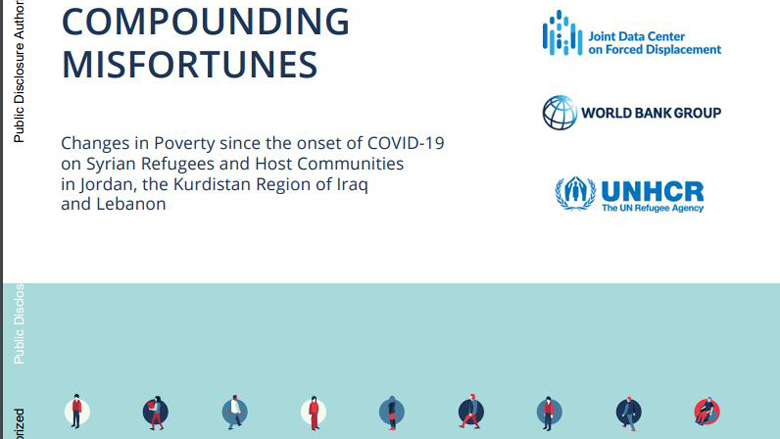Changes in Poverty since the Onset of COVID-19 on Syrian Refugees and Host Communities in Jordan, the Kurdistan Region of Iraq and Lebanon
COVID-19 has had an enormous impact on nearly every country in the world. Iraq, Jordan and Lebanon were already facing difficult to extreme circumstances even before the pandemic erupted, making them particularly vulnerable. This report looks at the impact of the pandemic, associated lockdowns and economic shocks and other misfortunes which have compounded the crisis, such as sharply lower oil revenues in Iraq and the Port of Beirut explosion in Lebanon, as well as political instability in both.
This joint UNHCR-World Bank study, funded by the Joint Data Center on Forced Displacement, undertakes a micro-simulation exercise using macroeconomic projections on changes in the economy and translates these into shocks on households’ consumption and therefore poverty.
The report estimates that 4.4 million people in the host communities and 1.1 million refugees or IDPs were been driven into poverty in the immediate aftermath of the crisis, and while this considers all of Lebanon, it only includes three governorates in Jordan and the Kurdistan Region of Iraq, due to data limitations.
A response commensurate with the magnitude of the shock is needed to prevent further misery. Understanding the effects of COVID-19, and of other compounding crises in the case of KRI and Lebanon, is a crucial step in informing the policies that need to be adopted as the pandemic unfolds and during the recovery period. This study is part of a multi-phase collaboration between the World Bank and UNHCR. Phase I, presented in this report, estimates the impact of the crisis(es) on poverty among host and refugee communities; Phase II aims to calibrate these simulations with new phone survey data reflecting current circumstances on the ground and to delve more specifically into policy options.
